If you have been looking for a way to say so long to your glasses, chances are that you started your search with LASIK. There is a reason why LASIK is so popular.
The refractive surgery works incredibly well. With a success rate of over 96%, LASIK has helped millions of people achieve the vision they never thought they could have.
But part of what makes LASIK so successful is its strict candidacy requirements. If you don’t qualify for LASIK, you can’t have the procedure.
What happens if you want LASIK and aren’t a good candidate? Keep reading to learn more!
LASIK Candidate Requirements
During your LASIK consultation at Colorado Eye Consultants, you will go through an exhaustive interview and exam process. This will determine whether you are a good candidate for the procedure. Here are a few things your ophthalmologist will be looking for:
Vision stability
Our eyesight tends to fluctuate with age. Hormones and other factors can cause it to become more unpredictable.
It is for this reason that you cannot get LASIK until you are at least 18 years old. It’s also why pregnant women need to wait several months after they finish nursing before they can have LASIK.
If your vision has not remained unchanged for at least a year, you will need to wait until it is before you can undergo LASIK.
Health
Both your eye health and your overall health play a significant role in your LASIK eligibility. Conditions like diabetes, HIV, or autoimmune conditions that make it harder to recover will make you not qualify for LASIK.
Eye problems like dry eye, keratoconus, or scarring make LASIK too dangerous to perform. Having LASIK with any of these will increase your risk of complications.
Corneal Thickness
Not everyone has enough corneal tissue for LASIK surgeons to work with. Thin corneas are also a risk factor when it comes to LASIK candidacy.
One of the most important factors for LASIK candidacy is corneal thickness. If your corneas are too thin, getting LASIK becomes dangerous.
LASIK Alternatives
Even if you are not a good candidate for LASIK, there are many other surgical options that can give you results that are comparable to LASIK!
PRK is a popular LASIK alternative, as it is very similar to LASIK. Recovery from this surgery is a bit longer and more difficult.
With PRK, there is a significant reduction in the risk of complications. One of the biggest reasons for this is because PRK is usually a better choice for patients that have thinner corneas and can’t get LASIK.
RLE works in a different way. Rather than reshape your corneas like LASIK and PRK, RLE changes your vision by replacing your natural lens with an artificial one.
This lens is called an IOL, and is very customizable. RLE as a procedure is almost identical to cataract surgery and is something that people with presbyopia may choose to undergo.
Implantable collamer lenses (also known as the Visian ICL) are another LASIK alternative that is growing in popularity. ICLs are essentially contact lenses that can be inserted into your eyes.
The Visian ICL is not invasive and delivers outstanding visual results with minimal recovery. If you decide you no longer want the ICL, you can have it removed later on, so it doesn’t need to be permanent.
Have questions about what vision correction procedure is right for you? Request an appointment at Colorado Eye Consultants in Littleton, CO to discuss your options and what’s best for you!
Even if you don’t qualify for LASIK, you can still achieve your visual freedom goals!

